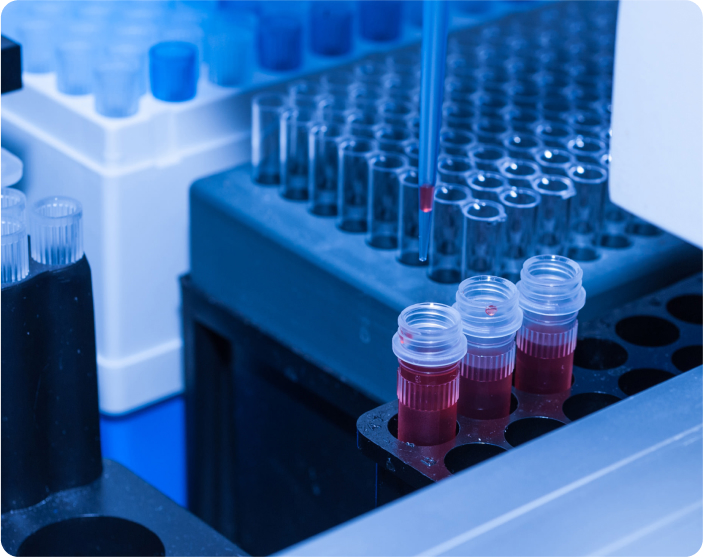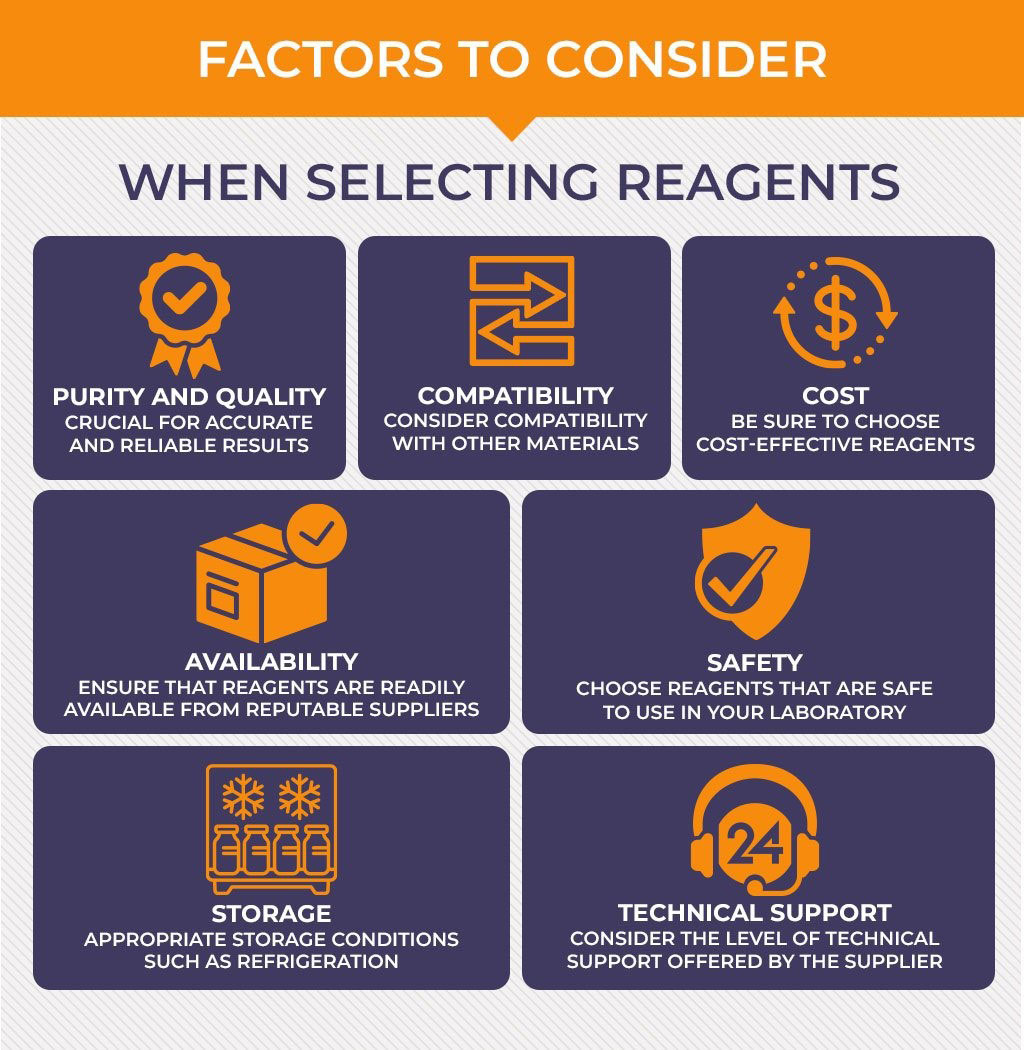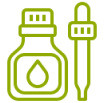What Are Laboratory Reagents?

Laboratory reagents are critical substances used in scientific research, medical testing, and industrial quality control processes. These chemical compounds are essential for conducting experiments, analyzing samples, and ensuring accurate, reliable results across various scientific and industrial fields.
Reagents play a pivotal role in achieving precise and dependable outcomes. However, their selection and use require careful consideration, as factors like impurities or improper storage can compromise results. Choosing high-purity reagents is key to ensuring accuracy. This involves sourcing from reputable suppliers, verifying certificates of analysis, and performing in-house quality control checks to ensure they meet required standards.
Another essential factor is the shelf life of reagents. Over time, especially in the case of biological reagents, potency can degrade, which may impact the effectiveness of experiments. Proper storage and adherence to expiration dates are crucial to maintaining reagent stability and ensuring consistent performance throughout their use.
By focusing on these considerations, labs can optimize reagent quality and ensure reliable, repeatable results in their research or testing processes.
Classification of Laboratory Reagents
Reagents can be classified into several categories based on their function and chemical properties.
- Analytical reagents: These are used to analyze the composition or purity of a sample. Examples include acids, bases, and indicators.
- Diagnostic reagents: These are used to diagnose medical conditions or diseases. Examples include pregnancy test kits and glucose test strips.
- Research reagents: These are used in scientific research to study the properties and behavior of chemical compounds. Examples include enzymes, antibodies, and nucleic acids.
- Staining reagents: These are used to color or dye biological or microscopic samples for easier observation and analysis. Examples include hematoxylin and eosin.
- Preservation reagents: These are used to preserve biological specimens for later analysis. Examples include formalin and ethanol.
- Buffers: These are solutions that can resist pH changes when small amounts of acid or base are added to them. They are essential in many
chemical reactions, particularly in biological systems.
Factors To Consider When Selecting Reagents For Your Laboratory
When choosing reagents for your laboratory, several key factors should be evaluated to ensure optimal results for your experiments:
- Purity and Quality: The purity of reagents is vital for obtaining accurate and consistent results. Use certified reagents from reputable suppliers that meet the specific purity requirements of your experiment. Ensuring quality control, through certificates of analysis or in-house testing, is essential for
reliable outcomes. - Compatibility: It’s important to consider how well the reagents interact with other substances in your experiment. Factors like pH range, temperature tolerance, and specific chemical properties must align with the conditions of your procedure to avoid undesirable reactions or inaccurate data.
- Cost: Reagent prices can vary significantly. Select reagents that are cost-effective while maintaining the quality needed for your research. Striking a balance between affordability and performance is essential to optimizing both your budget and results.
- Availability: Ensure the reagents you choose are easily available from trustworthy suppliers. Consistent availability is crucial to avoid delays in your research. It’s important to have a reliable source for restocking to maintain a steady workflow.
- Safety: The safety profile of reagents should be a priority. Consider factors such as toxicity, flammability, and the potential for hazardous reactions. Proper safety protocols, including personal protective equipment (PPE) and handling guidelines, should be in place to mitigate risks.
- Storage: Proper storage conditions, such as refrigeration or protection from light, are necessary to preserve the efficacy and stability of reagents. Verify that your lab has the appropriate facilities for storing each reagent according to its specific requirements.
- Technical Support: Access to technical support from the supplier can be invaluable. Having knowledgeable experts who can provide guidance on reagent use, troubleshooting, and optimization can significantly enhance the efficiency of your laboratory operations.
By considering these factors, you can select the most suitable reagents for your experiments, ensuring accuracy, reliability, and safety in your laboratory environment.

Purity and quality: The purity and quality of reagents are crucial for accurate and reliable results. Be sure to use reagents that have been certified or tested by a reputable supplier and meet the required specifications for your experiment.
Compatibility: Consider the compatibility of the reagents with other materials that will be used in your experiment, such as:
- The pH range
- Temperature range
- and other individual chemical properties.
Cost: The cost of reagents can vary widely, so be sure to choose cost-effective reagents for your research without compromising on quality.
Availability: Ensure that the reagents you select are readily available from reputable suppliers and that you have a reliable source for replenishing your stock.
Safety: Consider the safety aspects of the reagents, such as the toxicity, flammability, and potential for explosion. Choose reagents that are safe to use in your laboratory and that you have the appropriate safety equipment and protocols in place.
Storage: Ensure you have the appropriate storage conditions for the reagents, such as refrigeration or protection from light.
Technical Support: Consider the level of technical support offered by the supplier. It can be helpful to have access to an experienced chemist who can answer questions and provide guidance on the best use of the reagents.
By considering these factors when selecting reagents for your laboratory, you can ensure that you are using the most appropriate materials for your experiments and that your results are accurate and reliable.



